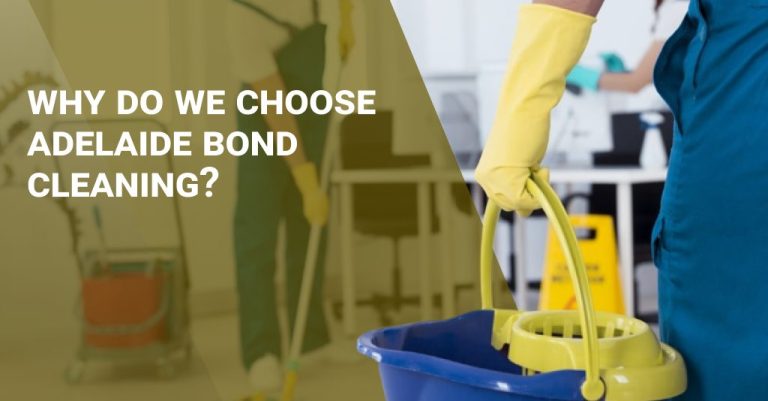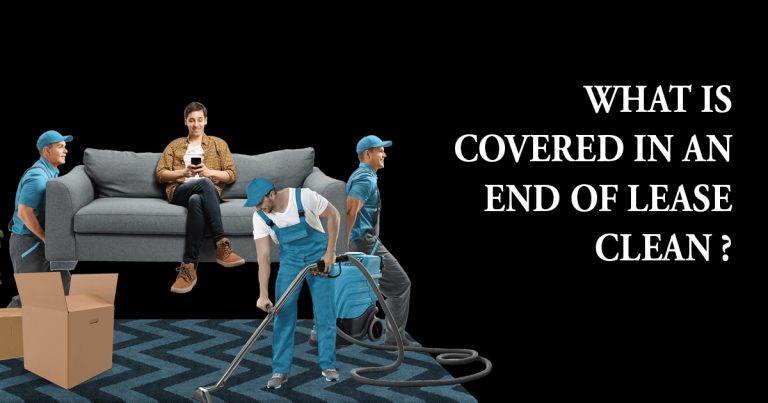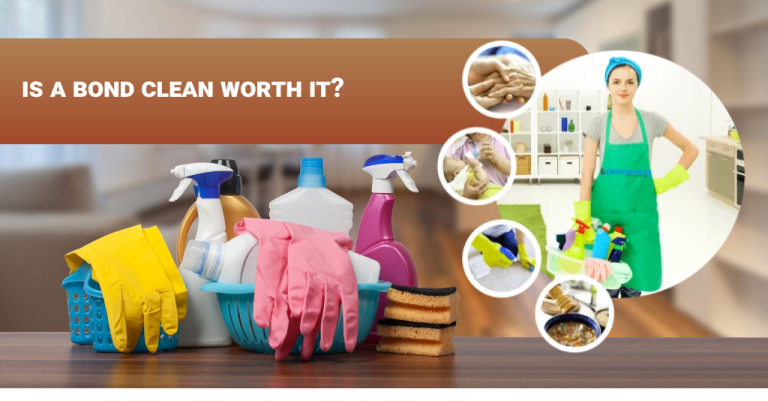Dirt2Tidy: Bonded, Insured, and Trusted
At Dirt2Tidy, our staff are bonded, insured, and highly trained, reflecting our commitment to a professional and trustworthy cleaning service. Our bonded business model ensures that clients both residential and commercial receive exceptional service every time.
We take pride in honesty, transparency, and delivering on our promises. Our janitorial bond cleaning services give you peace of mind, knowing that you’re working with a company that values quality, integrity, and client satisfaction.
Our reputation is built on principles we stand by, and we know it matters to our clients. At Dirt2Tidy, what we say is backed by action every clean, every time.
What Bonds Really Mean
A bond is a financial guarantee that a business will fulfill its contractual obligations. If a company fails to meet the terms, the bond provides compensation to the client, offering peace of mind and protection.
For contractors, being bonded builds trust and credibility, showing clients that the business is responsible and prepared to address legal or financial issues. Beyond being a financial tool, bonds are a strategic asset that enhances reputation and reassures clients.
Example: If a contractor damages your home, the bond ensures you can be reimbursed for losses, protecting both parties.
How long does a janitorial and cleaning service bond remain active?
Janitorial and cleaning service bonds typically last one or three years, depending on your chosen term. Renewal at the end of each term is required to maintain coverage, protect your clients, and keep your business bonded. Most providers make the process simple, so your focus can stay on delivering quality service.
What is the recommended bond amount for residential cleaning contracts?
For residential cleaning, a bond amount of at least $10,000 is recommended, with many businesses choosing $15,000–$25,000 for added assurance.
Selecting the right bond amount demonstrates professionalism, builds client trust, and prepares your business for potential growth into commercial projects.
How Can I Get Bonded?
To become bonded, you’ll first need to apply for a surety bond. This involves several key steps:
Initiate the Application: Begin by applying for a surety bond specific to your needs. Engage with professionals who can guide you through the process and make it as seamless as possible.
Gather Documentation: Be prepared to submit essential documents, including:
- Your business plan
- A list of your primary employees
- Current contracts with customers
Financial Vetting: You might also need to provide financial documents such as: A cash flow statementA balance sheetAn income statement. A representative will inform you of the exact requirements, ensuring you have everything in order.
Assessment and Qualification: Once your application is complete, it will be assessed to determine if you qualify for bonding. If approved, you’ll be informed of your premium, which reflects the associated risk.
What happens when a janitorial service bond is up for renewal?
Janitorial service bonds, typically valid for one to three years, must be renewed to remain active. As the renewal date approaches, providers send reminders so you can pay the renewal premium and maintain uninterrupted coverage.
Renewing ensures your business stays compliant, clients remain confident, and your protection continues without gaps. Most providers offer guidance to make the process quick and hassle-free.
How Quickly Can You Get Proof of Bonding?
Speed matters, especially when you’re growing your cleaning business or need to reassure customers without delay. Once your bond application is approved and your payment is processed, you can typically receive official proof of bonding within minutes often delivered straight to your email.
This immediate turnaround means you’ll have documentation ready to show potential clients, property managers, or commercial partners almost instantly, helping secure contracts and build trust right from the start.

How Quickly Can Your Janitorial Business Get Bonded?
The bonding process for janitorial service companies is refreshingly swift. Once you’ve submitted your completed application and provided the necessary documents, approval typically follows in short order. In many cases, your surety bond can be issued and sent to you electronically within minutes, allowing you to demonstrate proof of bonding to clients almost immediately.
This rapid turnaround means you won’t be left waiting to get started. With your bond in hand, you can confidently reassure customers and begin building trust with every new contract.
Getting Bonded Without a Credit Check
Many janitorial service bonds for small cleaning businesses (usually 25 employees or fewer) are available without a credit check. You can secure coverage sometimes up to $250,000 by meeting basic business qualifications.
To get started, choose a reputable surety provider, prepare business documents, and complete a simple application. This makes it easier for smaller or newer cleaning businesses to build client trust and take on larger projects without credit concerns.
Why Bonding Matters ?
Bonding offers peace of mind by safeguarding against possible claims of inadequate performance. For businesses, it demonstrates a commitment to quality and reliability, enhancing trust with clients and partners alike.
This comprehensive approach helps ensure that both you and your clients are protected, fostering a secure and trustworthy business environment.
Challenges of Obtaining Surety Bonds with Bad Credit
Individuals with bad credit often face hurdles when seeking surety bonds. Low credit scores signal high risk, leading to denials, higher premiums, or limited bonding options.
Providers may impose increased scrutiny and stricter financial evaluations, which can delay the process. Even if approved, costs tend to be higher, impacting your bottom line.
Overcoming these challenges requires persistence, improving creditworthiness, and exploring alternative bonding options.
Maximum Bond Amount Available Without a Credit Check
If you operate a janitorial service with 25 or fewer employees, you can secure a bond for up to $250,000 without undergoing a credit check. This offers smaller cleaning businesses a straightforward, hassle-free way to meet bonding requirements, regardless of credit history. For those needing a higher bond amount or for larger companies, additional steps may be required, but the process remains efficient and accessible.
Understanding Surety-Backed Letters of Credit
Navigating financial transactions can be daunting, but understanding tools like surety-backed letters of credit can make a world of difference for businesses. These financial instruments offer a unique way to manage risk and assure payment.
What Are Surety-Backed Letters of Credit?
A surety-backed letter of credit is a financial guarantee provided by a surety company on behalf of a client. It assures the beneficiary often a seller or service provider that they will receive payment on the contractual agreement, even if the client fails to fulfill their obligations.
How Do They Work?
- Initiation: A business (the principal) requests a surety bond from a surety company to back a financial or contractual obligation.
- Parties Involved:
- Principal: The business seeking assurance.
- Beneficiary: The party receiving the guarantee.
- Surety Company: The guarantor providing the bond.
- Credit Assessment: The surety evaluates the principal’s financial stability and creditworthiness to set terms.
- Issuance: Once approved, the surety issues the bond, promising payment to the beneficiary if the principal defaults.
- Execution: If the principal fails to meet obligations, the surety fulfills the payment up to the bond amount.
Key Benefits
- Risk Mitigation: Reduces the risk for beneficiaries who require assurance of payment in business transactions.
- Financial Flexibility: Allows businesses to engage in larger transactions without tying up substantial amounts of working capital.
Who Can Benefit from It?
- Businesses: Getting into new markets with confidence.
- Suppliers and Vendors: With assurance of payment.
- Financial Institutions: Offering competitive credit solutions.
Surety-backed letters of credit are invaluable in today’s complex market landscape. They support smoother transactions, lower financial risk, and offer peace of mind to all parties involved.
What Other Businesses Need Fidelity or Business Service Bonds?
Fidelity or business service bonds aren’t just for cleaning companies they benefit any business whose employees enter clients’ homes or offices. Examples include:
- Home health care providers – handling sensitive information and valuables.
- Pet sitters & dog walkers – trusted with keys, alarm codes, and pets.
- Landscaping & lawn care – working on private or commercial property.
- Handyman services & contractors – electricians, plumbers, carpenters, and repair professionals.
- IT support technicians – accessing confidential data and expensive equipment.
- Moving companies – responsible for household or office valuables.
- Home security installers – setting up alarms, cameras, or smart locks.
In short, any business with employees entering client spaces can benefit from bonding. It builds trust, provides protection, and reassures clients that their property and information are safe.
How to Determine If You Qualify for a Surety Bond?
- Submit an Application: Provide your business and financial details to a reputable surety provider.
- Undergo a Risk Assessment: The surety evaluates credit history, financial stability, and overall business health.
- Evaluate Finances: Strong personal and business finances, including credit score and financial statements, improve eligibility.
- Receive a Decision: The surety informs you if you qualify and provides a premium quote.
- Understand the Premium: Premiums are a percentage of the bond amount, reflecting the assessed risk.
Following these steps ensures clarity on your eligibility and the financial commitment involved in securing a bond.
How Does Employee Count Influence the Required Bond Amount?
The number of employees directly affects your bond amount more staff increases potential liability, requiring higher coverage. Some regulations scale minimum bond requirements based on employee count, especially in industries like cleaning, security, or home care.
As your business grows, you can adjust your bond with your provider to stay compliant and maintain full protection.

What Documentation Is Required to Apply for a Surety Bond?
To apply for a surety bond, you’ll typically need:
Business Documentation:
- Business plan outlining objectives and strategies
- List of key employees
- Current contracts with clients
Financial Records:
- Cash flow statement
- Balance sheet
- Income statement
Surety Bond Application:
- Completed bond application or quote form
Having these documents ready ensures a smooth application process. Your surety provider may request additional information and will guide you through any extra requirements.
Is There a Connection Between Business Licensing and Getting Bonded?
While related, business licensing and getting bonded are separate requirements. A business license registers your company with local authorities, allowing you to operate legally. A bond, however, assures clients and vendors that your business is trustworthy and financially responsible.
Some industries may require both, but holding one doesn’t replace the other. Check local regulations and your surety provider to ensure your business meets all legal and industry standards from the start.
Is a Special License Required to Operate a Cleaning Business?
Most locations don’t require a special cleaning business license a standard business license or registration is usually sufficient. This ensures your business is legally recognized and compliant with taxes and local regulations.
Licensing is separate from bonding or insurance: while a license handles regulatory compliance, bonds reassure clients of your trustworthiness and financial responsibility. Always check local rules, as some areas may require additional permits, especially for specialized cleaning services.
Understanding the Components of a Surety Bond Agreement
A surety bond agreement involves three key parties:
- Principal: The party responsible for fulfilling the contract.
- Obligee: The party protected by the bond, who benefits from the principal’s performance.
- Surety: The guarantor that ensures the principal meets their obligations and covers losses if they fail.
This agreement provides protection for the obligee and ensures accountability for the principal.
Types of Surety Bonds
- Commercial Surety Bonds: Ensure businesses comply with laws and regulations.
- Contract Surety Bonds: Common in construction, these guarantee contracts are completed as agreed.
Knowing the types of bonds helps businesses and clients navigate agreements with confidence.
Is There a Difference Between a Janitorial Bond and a Cleaning Service Bond?
The short answer: no. Both janitorial bonds and cleaning service bonds are types of fidelity or business service bonds. They protect clients if an employee commits theft or dishonest acts while on the job, whether in offices or homes.
These bonds aren’t limited to cleaning other service businesses like locksmiths, HVAC technicians, and pet sitters also use them. Essentially, despite different names, they function the same: providing trust, protection, and peace of mind for both your business and your clients.
Are Janitorial Service Bonds the Same as Fidelity Bonds or Theft Bonds?
Yes janitorial service bonds, fidelity bonds, and theft bonds are often used interchangeably. All protect clients if an employee commits theft or dishonest acts while on the job.
While common in cleaning and janitorial services, similar bonds are used in security, maintenance, and any business where employees access client property. No matter the name, the purpose is the same: giving clients peace of mind and assurance of compensation if something goes wrong.
Are Janitorial Service Bonds Legally Required?
In most cases, janitorial service bonds are not legally required to operate a cleaning business. However, many clients especially commercial properties and management firms require them as a contract condition.
Being bonded provides an extra layer of trust, protecting clients against employee theft or damage, and helps your business stand out in a competitive market.
Are Janitorial Service Bonds Needed for Business Licensing?
Janitorial service bonds protect clients against theft or dishonesty by employees, but they’re generally not required for a business license. Licensing authorities usually require a license or permit bond to ensure compliance with local laws.
While janitorial bonds aren’t mandatory, they can build extra trust with clients especially if requested in a contract. Understanding the difference helps you focus on the right requirements when starting or expanding your cleaning business.
How Much Does a Janitorial Service Bond Cost?
The cost of a janitorial service bond varies based on business size, coverage amount, number of employees, and risk profile. Premiums often start around $100 per year for small operations and can range higher for larger businesses.
For example, a $10,000 bond typically costs between $100–$250 annually. Working with a reputable surety provider lets you compare quotes from multiple companies, helping you secure the best rate while ensuring proper coverage.
What Are the Available Bond Term Options for Cleaning Businesses?
Surety bonds for cleaning businesses usually come in one- or three-year terms. You can choose the term that best fits your business needs, and renewal is required at the end of each period.
Selecting the right bond term ensures continuous coverage, keeps you compliant, and gives both you and your clients peace of mind.
How to Choose the Right Term and Finalize Your Janitorial Service Bond
Choose a bond term commonly one, two, or three years that aligns with your contracts and business needs. Shorter terms suit short projects, while longer terms offer convenience for ongoing agreements.
Once decided, purchase your bond through a reputable provider. Most offer quick online processing, with a digital copy delivered within a business day, ready to show clients or regulators. With your bond finalized, your business is protected and prepared to meet contractual obligations confidently.
Determining the Right Janitorial Service Bond Amount for Your Business
Choosing the right janitorial service bond amount balances client requirements with your business resources.
- Client Base: Residential contracts often require $10,000–$25,000, while commercial clients may expect $25,000–$50,000.
- Number of Employees: More staff increases potential exposure, which may necessitate higher coverage.
- Bond Term: Decide between short-term or multi-year bonds based on your business needs.
Factoring in these elements helps set a bond amount that meets client expectations and supports business growth. Most providers allow adjustments as your needs evolve.
What Is the Recommended Bond Amount for Commercial Cleaning Contracts?
For commercial cleaning contracts, a higher bond amount is recommended. While residential operations often start at $10,000–$25,000, commercial clients usually expect a minimum of $25,000, with many businesses opting for $50,000 to meet industry standards and client expectations.
Choosing the right bond amount helps build trust, satisfy contracts, and protect your business.
Step-by-Step Guide to Filing a Claim Against a Surety Bond
1. Identify Parties: Know the obligee (protected party) and principal (bonded service provider).
2. Review the Bond: Confirm the breach of obligations outlined in the agreement.
3. Gather Evidence: Collect contracts, correspondence, and records supporting your claim.
4. Contact the Surety: Reach out to the surety company listed on the bond.
5. Submit a Formal Claim: Complete the required forms and attach all evidence.
6. Cooperate with Investigation: Provide additional information as requested.
7. Resolution: If valid, the surety compensates the obligee and may seek reimbursement from the principal.
Keep in Mind
- Filing a claim should be seen as a serious and final step after attempts to resolve issues directly with the principal have failed.
- Misleading or fraudulent claims can lead to legal repercussions.
This process secures the integrity of business practices and protects involved parties when contractual commitments are not fulfilled. Understanding each step ensures you’re prepared to navigate this legal landscape efficiently.
Non-bonded firms can provide lower rates because they don’t pay premiums. Dirt2Tidy works hard to guarantee that our services and products deliver excellent value to you, the customer, and that you are never responsible for any wrongdoing or accidents that occur while working with us.
What “Insured” Means
If your cleaning firm isn’t insured and something happens, you’re responsible. You may have to compensate the injured person’s lost salary if you caused the accident. Filing a claim It might raise your homeowners’ insurance costs. These obligations are handled by an insured cleaning firm. Cleaning business insurance covers any claims, not yours might raise your homeowners’ insurance costs. These obligations are handled by an insured cleaning firm. Cleaning business insurance covers any claims, not yours.

Understanding Reimbursement: Bond vs. Insurance
When it comes to financial safety nets, both bonds and insurance serve crucial roles, but they differ significantly in terms of reimbursement.
Insurance Reimbursement
With insurance, if you suffer a covered loss, such as damage to your property, you can file a claim. The insurance company then assesses the claim and, upon approval, covers the damages. Importantly, once the insurer pays out the claim, you are not liable to reimburse them. This makes insurance a protective measure that absorbs financial shocks without expecting repayment from you.
Bond Reimbursement
Bonds operate under a different framework. Their primary goal is to ensure that obligations are fulfilled without the need for claims. A bond claim typically arises from misconduct or failure to meet contractual duties, like theft or incomplete job performance. If a claim is filed and the bond company pays out, you are required to reimburse them the full amount paid. In essence, bonds act as a guarantee for your promise to perform or adhere to the terms of an agreement, rather than a direct shield against financial loss.
In summary, while insurance shields you from financial consequences without requiring repayment, bonds function as a backup plan that ensures you follow through on your commitments and if the bond pays out, you’ll need to repay that amount.
Why Janitorial Service Bonds Matter Even If You Have Insurance
Insurance covers general risks, but janitorial service bonds add an extra layer of protection against a cleaner’s negligence or dishonesty.
- Liability Protection: If a cleaner causes loss or damage, a bond ensures the financial responsibility falls on the service, not you.
- Credibility: Bonded companies demonstrate trustworthiness and ethical practices.
- Direct Compensation: Bonds provide a straightforward way to claim reimbursement for theft or property damage, separate from your own insurance.
In short, service bonds complement insurance, shift liability appropriately, and give you peace of mind.
Decision-Making
Hire a bonded and insured cleaning firm. Professional firms expect questions. When they’ve invested in your protection, they’ll typically inform you. At a minimum, your cleaning firm or freelance cleaner should possess liability and worker’s compensation insurance.
Whether you use a bonded and insured cleaning firm depends on your risk tolerance. Unbonded and uninsured cleaning company and freelance cleaners are cheaper. If you pay less for their service, you’ll be accountable for injuries, accidents, and theft. Decide how much you’re willing to risk.
Guarantee
We’re also committed to environmental sustainability. Dirt2Tidy cleaning products are formulated to meet strict green standards by internationally recognised certifications and organisations like EcoCert and the Environmental Working Group (EWG).
EWG rated all Dirt2Tidy products “A” for safety and commitment to human health. All of our Leaping Bunny-certified goods are vegan and include no animal testing.
Conclusion
When you choose us for your bond cleaning, you’re opting for top-tier service delivered by trained, bonded, and insured professionals. We back our work with a 100% satisfaction guarantee and if you’re not happy, we’ll come back and re-clean at no extra cost within 7 days. Add to that our competitive pricing and comprehensive range of services, and you’ve got a hassle-free way to secure your full bond refund.
Your home deserves the sparkle! Schedule your clean now and enjoy a fresh, bright, and welcoming space.






